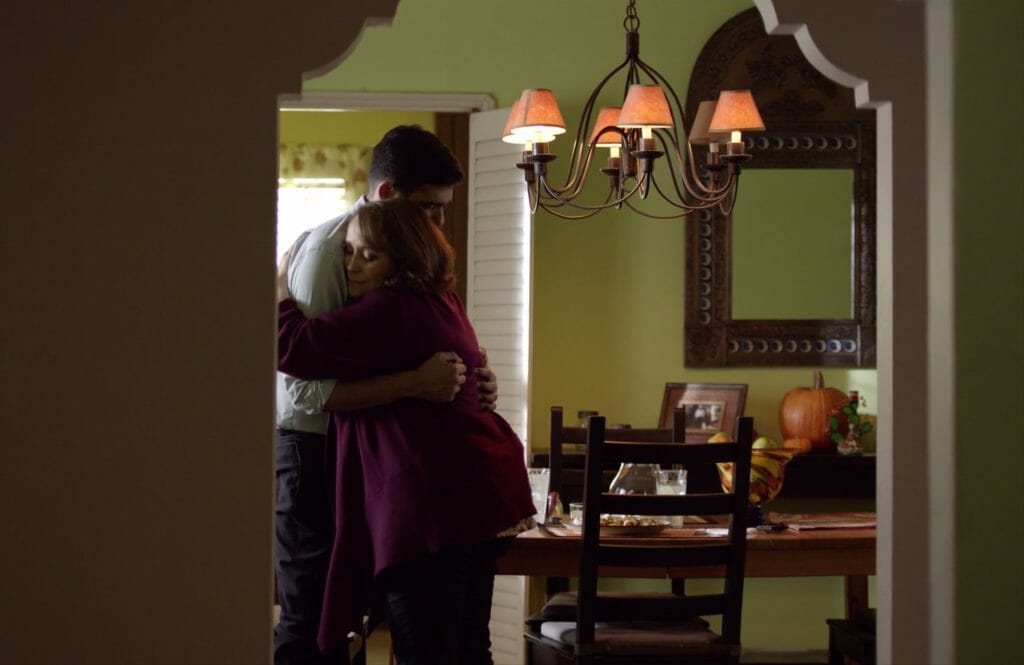When he was a little boy, actor and writer JM Longoria found it really difficult to share his fears and insecurities with his parents. His father came up with an idea: if you can’t speak it, write me a letter. From then on, father and son would leave each other letters about everything from teenage insecurity to fears about going to school after Columbine.
“You know that’s kind of a unique way to communicate, right?” writer and director Victor Dueñas, who is also Longoria’s partner, pointed out one day. And from that conversation about his dad and their novel way of communicating came the idea for the movie, “Bibi.” In the film, a little boy grieving his mother’s loss begins to communicate with his dad via letters, a way to connect that is challenged when he comes out, later in life, to his father.
Longoria and Dueñas worked hard to put together the project, bringing onboard producer/executive producer Edward Enriquez-Cohen and producer Vanessa Perez. They also cast respected Academy Award nominated actress Adriana Barraza (“Babel,” “Penny Dreadful: City of Angels”).
A moving look at the power of family, the importance of communication and the hurt caused by rejection, “Bibi” has been programmed at numerous prestigious national and international film festivals. It was also selected as part of the Southern Poverty Law Center’s Teaching Tolerance program which reaches more than 1 million schools and educators nationwide, grades 6-12. The initiative was created to educate young minds on the importance of accepting yourself, accepting others, and tackling bullying within our school systems, among other issues.
GLAAD recently caught up with Dueñas and Barraza to discuss the film as well as the importance of LGBTQ representation. You can watch GLAAD’s Monica Trasandes interview them, in both Spanish and English, here:
You can watch “Bibi” here: tolerance.org/Bibi













